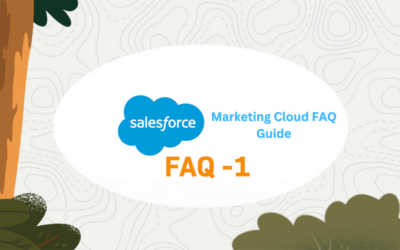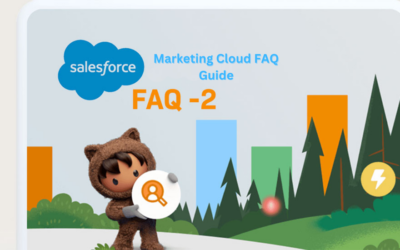In the dynamic landscape of digital marketing, where success hinges on the ability to navigate a myriad of tools and strategies, choosing the right platform is akin to setting the course for a business’s online journey. Two formidable contenders in this digital arena, HubSpot Marketing Hub and Constant Contact vie for attention, each boasting a distinctive array of features tailored to streamline marketing efforts. As we embark on this comprehensive exploration, our goal is to unravel the intricacies of these platforms, dissecting their strengths and potential drawbacks to empower businesses in making an informed choice that aligns seamlessly with their unique marketing needs. HubSpot Marketing Hub, renowned for its all-encompassing suite of tools spanning email marketing, social media management, SEO, and analytics, stands as a comprehensive solution for those seeking a centralized hub for diverse marketing strategies. Conversely, Constant Contact, with its specialized focus on email marketing excellence and integrated event management features, caters to businesses prioritizing focused and effective communication.
The digital realm, with its diverse marketing channels and ever-evolving trends, necessitates a strategic approach to platform selection. This detailed analysis aims to serve as a compass, guiding businesses through the intricate terrain of features, pricing structures, and user experiences offered by HubSpot Marketing Hub and Constant Contact. From the intuitive interface of HubSpot to the simplicity and proficiency in email marketing of Constant Contact, each platform offers a unique value proposition. The ensuing comparison is more than a juxtaposition of features; it’s an exploration that empowers businesses to make a judicious choice, recognizing that the selection of a digital marketing platform is not merely a decision but a strategic investment in the future success of their online presence. As we delve into the nuances of these platforms, we navigate the complexities of the digital marketing landscape, equipping businesses with the insights necessary for a resilient and effective digital marketing strategy. If you need assistance with Salesforce CRM setup and optimization, companies like CRM Force can provide valuable expertise and support.
1- HubSpot Marketing Hub Overview
HubSpot Marketing Hub stands as a stalwart in the realm of digital marketing platforms, renowned for its comprehensive suite of tools designed to empower businesses of all sizes. Below, we delve into the key features and functionalities that make HubSpot Marketing Hub a standout choice for marketers seeking an all-in-one solution.
All-in-One Marketing Platform: HubSpot Marketing Hub takes pride in consolidating various marketing tools into a unified platform. From email marketing and social media management to SEO and analytics, HubSpot endeavors to provide marketers with a centralized hub for executing and monitoring diverse marketing strategies. This all-encompassing approach not only streamlines workflows but also fosters cohesion in multi-channel marketing efforts.
User-Friendly Interface: A notable strength of HubSpot Marketing Hub lies in its user-friendly interface. The platform has been meticulously crafted to be intuitive and accessible, ensuring that both seasoned marketers and those new to the digital marketing landscape can navigate and utilize its features with ease. The drag-and-drop functionality further enhances the user experience, enabling marketers to create compelling campaigns without the need for extensive technical expertise.
Marketing Automation Capabilities: Marketing automation is a cornerstone of HubSpot’s offering. The platform empowers businesses to automate repetitive tasks and nurture leads through the sales funnel effectively. From automated email campaigns triggered by specific user actions to personalized workflows that cater to individual customer journeys, HubSpot’s automation capabilities save valuable time and resources, allowing marketers to focus on crafting impactful content and strategies.
Advanced Analytics: In the data-driven era of marketing, analytics play a pivotal role in refining strategies and optimizing campaigns. HubSpot Marketing Hub excels in providing advanced analytics tools that furnish detailed insights into various aspects of marketing performance. Marketers can delve into website analytics, track lead behavior, and measure the effectiveness of campaigns, thus facilitating informed decision-making and continuous improvement.
Content Management System (CMS): HubSpot Marketing Hub comes equipped with a robust Content Management System (CMS) that enables users to create and manage content seamlessly. The CMS is integrated with other marketing tools, allowing for a cohesive content strategy. Marketers can optimize content for search engines, track performance, and ensure a consistent and engaging online presence.
HubSpot Academy: Recognizing the importance of education in the rapidly evolving digital landscape, HubSpot offers the HubSpot Academy. This educational platform provides a wealth of resources, courses, and certifications to help marketers enhance their skills and stay abreast of industry trends. The HubSpot Academy is an invaluable resource for users looking to maximize their proficiency in utilizing the platform effectively.
Scalability and Customization: HubSpot Marketing Hub is designed with scalability in mind. Whether you are a small business looking to expand or an enterprise managing complex marketing campaigns, HubSpot’s scalability allows for seamless growth. Additionally, the platform offers customization options, enabling businesses to tailor their marketing strategies to meet specific goals and objectives.
In essence, HubSpot Marketing Hub stands as a multifaceted solution that not only simplifies marketing workflows but also empowers businesses to forge meaningful connections with their audience. Its commitment to user-friendly design, automation, analytics, and education positions it as a comprehensive tool for marketers striving to navigate the complexities of the modern digital landscape.
2- Constant Contact Overview
Constant Contact has carved a niche for itself in the digital marketing arena, particularly excelling in the realm of email marketing. Below, we explore the key features and attributes that make Constant Contact a noteworthy platform for businesses seeking to enhance their email campaigns and overall online presence.
Email Marketing Focus: At the heart of Constant Contact’s offerings is its specialization in email marketing. The platform provides businesses with a robust suite of tools to create, send, and track email campaigns. From customizable templates to list management features, Constant Contact streamlines the email marketing process, making it accessible to businesses of all sizes.
User-Friendly Interface: Constant Contact is celebrated for its user-friendly interface, catering to users with varying levels of technical expertise. The platform’s intuitive design allows users to easily navigate through the email creation process, customize templates, and manage contact lists. This accessibility is especially advantageous for small businesses and organizations seeking an uncomplicated approach to email marketing.
Event Management Features: Going beyond email marketing, Constant Contact integrates event management tools into its platform. Users can create and promote events, manage registrations, and utilize post-event surveys to gather valuable feedback. This additional feature distinguishes Constant Contact as a platform that not only caters to online communication but also facilitates the organization of offline events.
Social Media Integration: Constant Contact acknowledges the significance of social media in contemporary marketing strategies. The platform offers social media integration, allowing users to schedule and publish posts across various platforms. This feature contributes to maintaining a consistent online presence, aligning with the evolving landscape where social media is integral to overall marketing efforts.
Basic Analytics: While not as extensive as some other platforms, Constant Contact provides basic analytics tools to assess the performance of email campaigns. Users can track open rates, click-through rates, and other metrics to gain insights into customer engagement. While more advanced analytics may be available on other platforms, Constant Contact’s analytics serve the purpose of guiding improvements in future campaigns.
List Segmentation and Personalization: Constant Contact enables businesses to segment their email lists based on various criteria, allowing for targeted and personalized communication. This feature is instrumental in delivering relevant content to specific audience segments, thereby enhancing the effectiveness of email campaigns and fostering stronger connections with recipients.
Customer Support: Recognizing the importance of reliable support, Constant Contact provides customer support through various channels. Users can access resources such as knowledge bases, tutorials, and community forums. The platform also offers customer support via email and phone, ensuring that users have access to assistance when needed.
3- Head-to-Head Comparison: HubSpot Marketing Hub vs. Constant Contact
When navigating the diverse landscape of digital marketing platforms, a head-to-head comparison between HubSpot Marketing Hub and Constant Contact becomes crucial for businesses aiming to make an informed decision. In this comprehensive analysis, we delve into key aspects, from pricing structures to customization capabilities, to help you determine which platform aligns best with your specific marketing needs.
A- Pricing Structure
HubSpot Marketing Hub: HubSpot often adopts a tiered pricing model, offering various plans tailored to the needs of different businesses. These plans may include features such as email marketing, social media management, and advanced analytics. The pricing structure is designed to scale with the size and requirements of your business, providing flexibility but potentially requiring a higher investment for more comprehensive features.
Constant Contact: Constant Contact typically follows a straightforward pricing approach, with plans based on the number of contacts in your email list. While this simplicity may be appealing, it’s essential to carefully evaluate whether the included features align with your marketing objectives. Constant Contact’s pricing model may be advantageous for smaller businesses seeking a cost-effective solution.
B- Customization and Scalability:
HubSpot Marketing Hub: HubSpot is renowned for its scalability, making it suitable for businesses at various stages of growth. The platform’s extensive suite of tools allows for customization, enabling businesses to tailor their marketing strategies to specific goals. HubSpot’s scalability is particularly advantageous for enterprises with evolving needs and a desire for a comprehensive and adaptable marketing solution.
Constant Contact: While Constant Contact provides a solid foundation for email marketing and event management, its customization options may not match the depth offered by HubSpot. Businesses with intricate marketing requirements or plans for expansion may find that Constant Contact has limitations in terms of scalability and customization.
C- Integration Capabilities:
HubSpot Marketing Hub: HubSpot boasts a thriving App Marketplace, offering a wide array of integrations with CRM, sales, and customer service tools. This integration capability enhances the seamless flow of data across various aspects of business operations, facilitating a more holistic approach to marketing.
Constant Contact: Constant Contact also provides integration options, but the variety and depth may not match those offered by HubSpot. Businesses heavily reliant on interconnected tools may find that Constant Contact’s integration capabilities are more limited, potentially requiring additional manual efforts to synchronize data.
D- Customer Support:
HubSpot Marketing Hub: HubSpot is renowned for its customer support, offering an extensive knowledge base, community forums, and responsive support channels. The HubSpot Academy further contributes to user education, ensuring that businesses can maximize the value of the platform.
Constant Contact: Constant Contact provides customer support through various channels, including email and phone. While it offers a knowledge base and community forums, the level of support may vary. Businesses with different levels of expertise should carefully evaluate the available support options to ensure their needs are met.
4- Pros and Cons: HubSpot Marketing Hub vs. Constant Contact
When choosing a digital marketing platform, a thorough examination of the pros and cons is essential to align the chosen solution with the unique needs and goals of your business. Below, we dissect the strengths and weaknesses of both HubSpot Marketing Hub and Constant Contact.
A- HubSpot Marketing Hub:
Pros:
All-in-One Solution: HubSpot Marketing Hub stands out for its all-in-one approach, consolidating various marketing tools under a single platform. This inclusivity streamlines workflows, providing a centralized hub for email marketing, social media management, analytics, and more.
Scalability: HubSpot’s scalability is a significant advantage, making it suitable for businesses of all sizes. Whether you are a startup or an enterprise, HubSpot can accommodate your evolving marketing needs and scale alongside your growth.
Comprehensive Analytics: The platform’s advanced analytics tools offer detailed insights into campaign performance, lead behavior, and website analytics. This data-driven approach facilitates informed decision-making, allowing marketers to refine strategies for optimal results.
User-Friendly Interface: HubSpot is lauded for its user-friendly interface, making it accessible to both seasoned marketers and beginners. The drag-and-drop functionality and customizable dashboards enhance the overall user experience.
HubSpot Academy: The HubSpot Academy provides an extensive resource for education, offering courses and certifications to enhance users’ skills. This commitment to education ensures that users can leverage the platform to its full potential.
Cons:
Cost Consideration: While HubSpot’s pricing is designed to cater to various business sizes, the more comprehensive plans may be relatively higher in cost. Smaller businesses with budget constraints may find the pricing less competitive compared to more specialized solutions.
Learning Curve: Despite its user-friendly interface, the extensive feature set of HubSpot may pose a learning curve for users new to digital marketing platforms. Adequate training and onboarding may be required for effective utilization.
B- Constant Contact:
Pros:
Email Marketing Specialization: Constant Contact excels in email marketing, providing businesses with a focused and robust set of tools for creating, sending, and tracking email campaigns. This specialization is advantageous for businesses prioritizing effective email communication.
User-Friendly Interface: Constant Contact is celebrated for its user-friendly interface, catering to users with varying levels of technical expertise. The platform’s simplicity makes it an ideal choice for small businesses and organizations seeking an uncomplicated approach to email marketing.
Event Management Features: The integration of event management tools distinguishes Constant Contact. This feature allows users to create and promote events, manage registrations, and gather feedback, providing a holistic solution for online and offline marketing efforts.
Social Media Integration: Constant Contact acknowledges the importance of social media and offers integration for scheduling and publishing posts. This feature contributes to maintaining a consistent online presence across various channels.
Cons:
Limited Scalability: Constant Contact may have limitations in terms of scalability and customization, particularly for businesses with intricate marketing requirements or plans for significant expansion. It may be more suitable for smaller enterprises with straightforward needs.
Basic Analytics: While Constant Contact provides basic analytics for email campaigns, the depth may not match platforms with more advanced analytical capabilities. Businesses seeking in-depth insights for data-driven decision-making may find the analytics somewhat limited.
Integration Variety: The range and depth of integrations in Constant Contact may not match those offered by more comprehensive platforms like HubSpot. Businesses relying heavily on interconnected tools may find that Constant Contact has limitations in this regard.
Conclusion
In the labyrinth of digital marketing solutions, the comparison between HubSpot Marketing Hub and Constant Contact reveals nuanced insights that can significantly influence a business’s marketing endeavors. As we navigate the pros and cons of each platform, it becomes evident that HubSpot’s robust, all-encompassing approach, with its scalability, comprehensive analytics, and user-friendly interface, positions it as an ideal choice for businesses seeking a versatile marketing toolkit. On the other hand, Constant Contact’s specialization in email marketing, coupled with its user-friendly interface and integrated event management features, makes it particularly appealing to smaller enterprises looking for a straightforward yet effective solution. The choice between these platforms ultimately hinges on the specific needs, scalability requirements, and budget constraints of each business, emphasizing the importance of a tailored approach to digital marketing.
In the ever-evolving realm of digital marketing, adaptability and focused communication are paramount. While HubSpot Marketing Hub provides a comprehensive arsenal for businesses aiming at a holistic marketing strategy, Constant Contact stands out as a reliable option, especially for those emphasizing targeted communication through effective email campaigns. Whether it’s the extensive toolkit of HubSpot or the streamlined efficiency of Constant Contact, the success of a business’s marketing efforts lies not only in the chosen platform but also in the strategic execution of campaigns and continuous adaptation to the evolving needs of the digital landscape. In conclusion, businesses must carefully weigh the attributes of each platform against their unique requirements to make a choice that propels them toward digital marketing success, and for those prioritizing effective email communication, Constant Contact emerges as a dependable ally in the journey ahead. To learn more about how CRM Force can assist you in recruiting top CRM talent and optimizing your CRM strategies for successful drip campaigns, contact us today. Together, let’s maximize your customer engagement Contact Us today.





